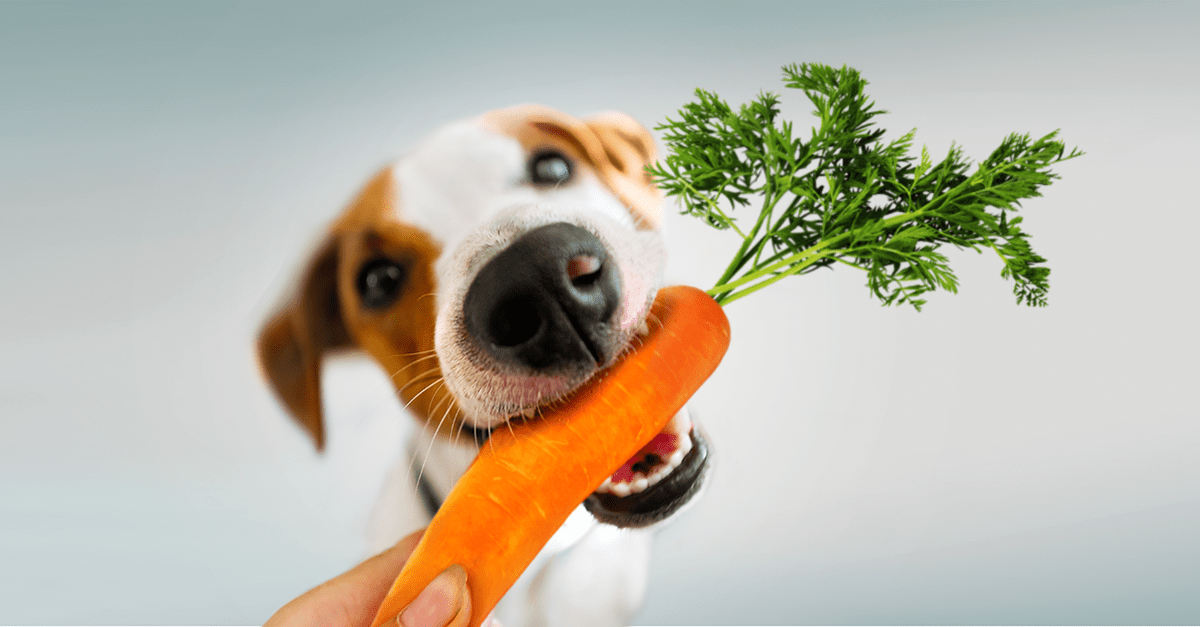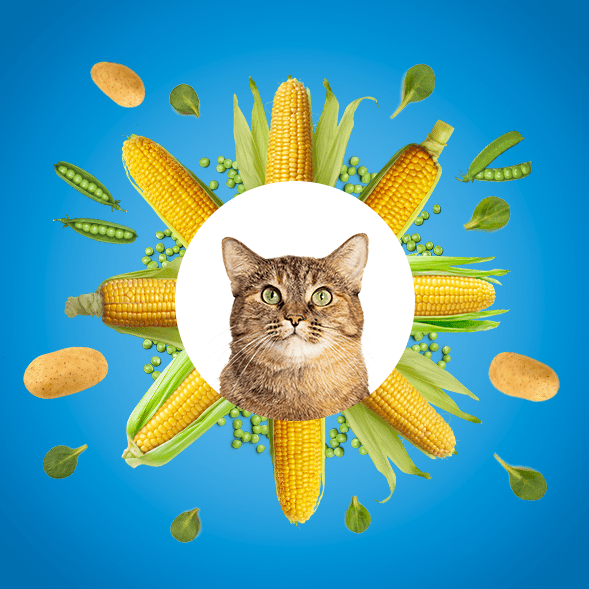

Your region has been set to
Change region
Close


Your region has been set to
Change region
Close



November 16 2021 - News

With global protein demand growing rapidly, the pet food industry is facing an animal and marine protein deficiency. This creates a demand for alternative, non-animal proteins. At the same time, the vegan pet food market is growing and developing rapidly, only hindered by concerns over nutrient deficiency. Both of these trends create a need for plant-based alternative ingredients that ensure the animal’s nutrient requirements are met by hybrid meat or fish/plant-based or vegan diets.
Recent research shows that cats and dogs can effectively live healthily on a plant-based diet using various plant- and yeast-based ingredients to supply the required amino acids. When choosing ingredients and supplements for plant-based pet food, aspects such as nutritional properties, taste, stool quality, and technical properties should be taken into consideration. Typical nutrients of animal origin that should be supplemented in hybrid meat or fish/plant-based or vegan pet food include taurine, long-chain omega-3 fatty acids, carnitine, arachidonic acid, and vitamin D.
Both cats and dogs require sufficient intake of high-quality, highly digestible protein. For cats, as true carnivores, the amount of highly digestible and high-quality protein within the total digestible protein should be a little higher than for dogs. Typical alternative high-quality protein sources include potato protein, wheat gluten, and corn gluten. Newer alternative protein sources are based on rice, non-GMO soy, and pulses, such as peas, faba beans, and chickpeas. Another category is hybrid fermented vegetable-based alternative protein made from vegetable protein and yeast.
A particularly interesting new ingredient for vegan or hybrid pet food applications is fermented corn protein, as an alternative, fermented, functional, high-concentration vegetable protein for cats and dogs. Fermented corn protein is produced via an engineered bio-refinery process designed to extract the most valuable elements of corn. The protein comes from an optimum balance of 75% corn with high digestibility and 25% spent yeast components with high palatability.
One of the most important areas of concern for vegan or other kinds of largely plant-based pet food is taurine supplementation. While dogs are normally able to synthesize sufficient amounts of taurine from animal protein, they require taurine supplementation when switching to a vegan diet. Unlike dogs, cats are unable to synthesize their own taurine in sufficient amounts and always need taurine to be supplemented in pet food. Without taurine supplementation in a vegan diet, cats and dogs can suffer from taurine deficiency, which may lead to the heart condition dilated cardiomyopathy (DCM), feline central retinal degeneration, and poor reproduction. Taurine is available as a chemically produced vegan supplement.
Besides taurine, omega-3 fatty acid is another essential nutrient that needs to be supplemented in vegan or hybrid pet food. As I explained in one of my previous blogs, the intake of adequate levels of the long-chain eicosapentaenoic acid (EPA) and docosahexaenoic acid (DHA) offers a number of benefits to the health and well-being of cats and dogs. EPA and DHA support cognitive function, improve skin/coat condition, help to manage inflammatory problems related to joint health and functioning, and help in the prevention and treatment of heart and bladder diseases. Algae DHA, produced from cultured microalgae, is the only vegan source of long-chain omega-3 fatty acid as well as high-quality fats with very good palatability and high acceptance amongst cats and dogs.

A healthy diet for cats and dogs contains a mix of both soluble and insoluble, fermentable and non-fermentable dietary fibers. Soluble fibers dissolve in gastrointestinal fluids and become a substrate for the beneficial microflora in the gut, acting as a prebiotic – the basis for good gut health. In one of my previous blogs, I explained the benefits of seaweeds, which have a very high content of soluble prebiotic dietary fibers. Insoluble fibers are particularly important for healthy bowel functioning and offer additional advantages, such as feline hairball control and weight management, in particular for senior pets. Purified cellulose powder offers the highest concentration of insoluble fibers, but other, more novel sources, such as Miscanthus or elephant grass, and functional carrot fiber, can also be considered.
Are you interested in learning more about choosing the right ingredients for hybrid animal/plant-based or vegan pet food? Our white paper explains all you need to know about suitable high-quality ingredients for hybrid animal/plant-based or vegan pet food applications.
Geert van der Velden is IQI Trusted Petfood Ingredients’ Innovation Manager responsible for Business Development, generating new products and concepts that meet the needs of existing and new customers. Geert has more than 25 years’ experience in the international pet food industry and has gained knowledge and experience in many sections of IQI’s business.